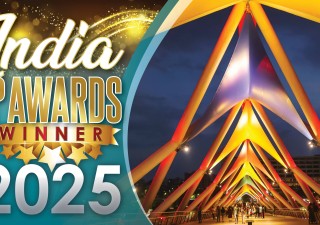Courts’ Versatility in Making a Defendant Pay Back
26 January 2017

In intellectual property, until recently, remedies were restricted to injunctions, damages and, in unusual cases, Anton Piller orders, Mareva Injunctions, John Doe orders, etc. Most of the unusual orders were not provided for (until recently) in the statute book, but were judge-made law. The late Judge Hugh Laddie, who served on the High Court of England and Wales, in fact drafted the Anton Piller order when he was a solicitor.
Law students are familiar with the Latin maxim “ubi jus ibi remidum,” which means that there is no right without a remedy. In fact, the strength of a legal system is dependent in a big way on the versatile remedies that its judges can fashion.
Damages were on the statute book but not granted due to one reason or another. In 2005, the courts started to grant damages, and over the next 11 years there were more than 240 cases where damages were granted. While in some cases damages awarded were compensatory alone, in others punitive and exemplary damages were granted as well. The principles on which damages ought to be granted have been discussed severally by courts and case law has evolved over time.
Once in a while, a defendant turns up having blatantly infringed the plaintiff’s intellectual property but unable to pay damages, mainly due to financial constraints. When the courts recognize that the defendant has done something wrong, they generally tend to believe that the defendant must pay back, if not monetarily, then by some other means.
What have been these different ways to pay back? This article looks at a diverse range of remedies fashioned by Indian courts primarily to get a defendant to pay back.
A few examples of the unique orders that have been passed are below:
• In a suit against Defendants selling counterfeit RAY BAN sunglasses, instead of paying compensatory damages, they were directed to distribute 500 pieces of unbranded glasses to the Blind Relief Association.
• In Dharampal Premchand v. Tata Zarda Factory the defendants were applying, without authorization, the plaintiff’s Baba Zarda trademark on their tobacco-based products. The court ordered the defendants to install spittoons in cancer hospitals in Hyderabad.
• A defendant caught with unlicensed Microsoft software was directed to work with Microsoft in anti- piracy campaigns and participate in seminars to advocate the correct and legal use of software.
• In Pioneer Hi-Bred International Inc v. Pioneer Seed Company Ltd., the plaintiff complained that the quality of the defendant’s, i.e., its joint venture partner in India, agricultural seeds had fallen below the germination standard. The defendant suggested having the seeds tested in laboratory. Justice Mahendra Narayan felt, however, that the testing could be done on the court’s premises itself and directed the court’s head gardener to plant the seeds for testing. On the returnable date, the gardener complained that the seeds had been eaten by birds and was accordingly directed to protect the seeds with umbrellas.
• In a case where the plaintiff complained of violation of its trademark Superflame, the court queried the defendant why they were using Blue Superflame as its corporate name. When the defendant claimed that the flame in a gas appliance is blue, the court asked for a demonstration, which was held in the judges corridor of the High Court. The case, post demonstration, was ultimately held in favour of the plaintiffs.
• Burger King filed a case against a highway restaurant using a name which violated its rights. The defendant did not enter appearance and so the court appointed a commissioner to physically paint over wherever the impugned name appeared, including on all milestones and hoardings along the highway.
• Community service as an alternative to payment of compensatory damages or actual costs has also begun gaining popularity with courts. Tata and Polo have obtained orders where defendants were directed to undergo community service including at orphanages, health clinics and old age homes instead of paying compensatory damages.
• A case was brought by Shriram Bhartiya Kala Kendra before the High Court on the day that the defendants were about to begin an unauthorized performance of the Bollywood drama Ram Leela. The court expressed difficulty in stopping the show on the same day it was about to be performed. Instead, the court directed that a disclaimer be read out to the audience at the beginning of the show informing viewers that the show was not authorized by the plaintiff.
Conclusion
In recognition that intellectual property matters are commercial disputes which need quick disposal, several things have happened, including a tendency of courts to pass creative orders. Interesting they may be, these orders have also benefited society, contributed to companies’ corporate social responsibility and attracted positive media attention, making the plaintiff look sensitive and humane.
First Channel Building
Plot No. 17 A, Sector 16 A
Film City, Noida 201301 (UP)
India
T: +91 120 4059300
F: +91 120 4243056 - 058
E: email@anandandanand.com






